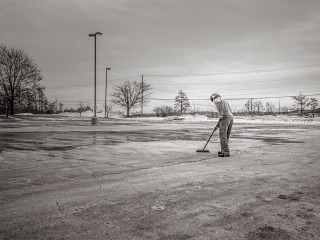Car crashes often cause serious injuries, which can be long term and require substantial treatment. Some accident victims unfortunately become disabled as a result of their injuries.
In addition to what might be available through private benefits or through an automobile insurance policy, an individual injured in a car crash may be entitled to benefits under the Ontario Disability Support Program (“ODSP”).
The Provincial government has recently made changes to the ODSP that will provide improved support to those who receive funding as a result of the settlement of a lawsuit or resolution of an automobile insurance claim.
The ODSP is government-funded income support paid to eligible Ontarians for living expenses, such as food and housing. It also provides health benefits, including some drug and dental coverage.[1] The ODSP is a program of last resort, meaning it is for people who cannot work due to disability and who do not have other sources of income or benefits.[2]
The ODSP has strict criteria which must be met in order to be approved for benefits, which include confirmation of a substantial mental or physical disability by a qualified health care provider and financial need.[3] With respect to the criterion of financial need, the legislation imposes limits on an individual’s assets. Compensation arising from a civil lawsuit or an automobile insurance claim are generally considered to be “assets” under the legislation.
Previously, where an accident victim was in receipt of ODSP benefits and then obtained a settlement from a civil lawsuit, only the first $100,000.00 for pain and suffering damages was exempt for ODSP purposes. This meant that amounts in excess, or for other types of damages, were considered assets and income and had the potential of triggering repayment obligations to the ODSP or cutting off future ODSP benefits. In essence, under the previous ODSP regime, car crash victims were often forced to choose between ongoing ODSP benefits or monies arising from the resolution of a civil suit or automobile insurance claim.
Effective August 2017, the provincial government made changes which will help accident victims bring civil claims and/or pursue accident benefits through an automobile insurer, without sacrificing ODSP eligibility. Now, settlements or awards in any amount which are in respect of pain and suffering or expenses actually or to be incurred as a result of the injury, such as for treatment, medication, and assistive devices, are fully exempt as income and assets for those in receipt of ODSP.[4] This means there is no longer a limit on the exemption for pain and suffering and future care awards, including awards for ongoing medical and rehabilitation treatment arising out of the resolution of an accident benefits claim.
The following payments, or settlements monies allocated to the following categories of payments, however, continue to be treated as income and/or assets for the purpose of determining ODSP entitlement:
- Income replacement benefits;
- Non-earner benefits;
- Past or future loss of income; and,
- Punitive damages awards.[5]
In other words, receipt of such payments, either on an ongoing basis or as a lump sum, can impact one’s entitlement to ODSP.
In addition, if an ODSP recipient uses exempt funds, such as money from a settlement for pain and suffering or future care, to purchase an asset, that asset may or may not be exempt. If the exempt award is used to purchase a non-exempt asset, it will count towards the asset limit. If the funds are used to purchase a principal residence or other approved asset that is necessary for health and welfare or a primary motor vehicle, the asset remains exempt and will not impact ODSP payments or eligibility.
The provincial government has indicated that the purpose for the change is to provide Ontarians receiving ODSP with the flexibility to use their awards in a way which best meets their needs.[6] These changes are obviously a step in the right direction for car crash victims who are on ODSP and then receive a settlement or judgment for pain and suffering or care costs or a resolution of a claim with an automobile insurer.
[1] https://www.mcss.gov.on.ca/en/mcss/programs/social/odsp/income_support/odsp_prescription.aspx
[2] https://www.mcss.gov.on.ca/en/mcss/programs/social/directives/odsp/is/5_9_ODSP_ISDirectives.aspx
[3] https://www.mcss.gov.on.ca/en/mcss/programs/social/odsp/info_sheets/what_odsp.aspx
[4] Ontario Disability Support Program – Income Support, 4.6 – Compensation Awards,
< https://www.mcss.gov.on.ca/en/mcss/programs/social/directives/odsp/is/4_6_ODSP_ISDirectives.aspx>
[5] Supra, note 2.
[6] For example, those receiving ODSP are now able to use their pain and suffering compensation for any purpose, rather than solely for pre-approved disability-related costs.













